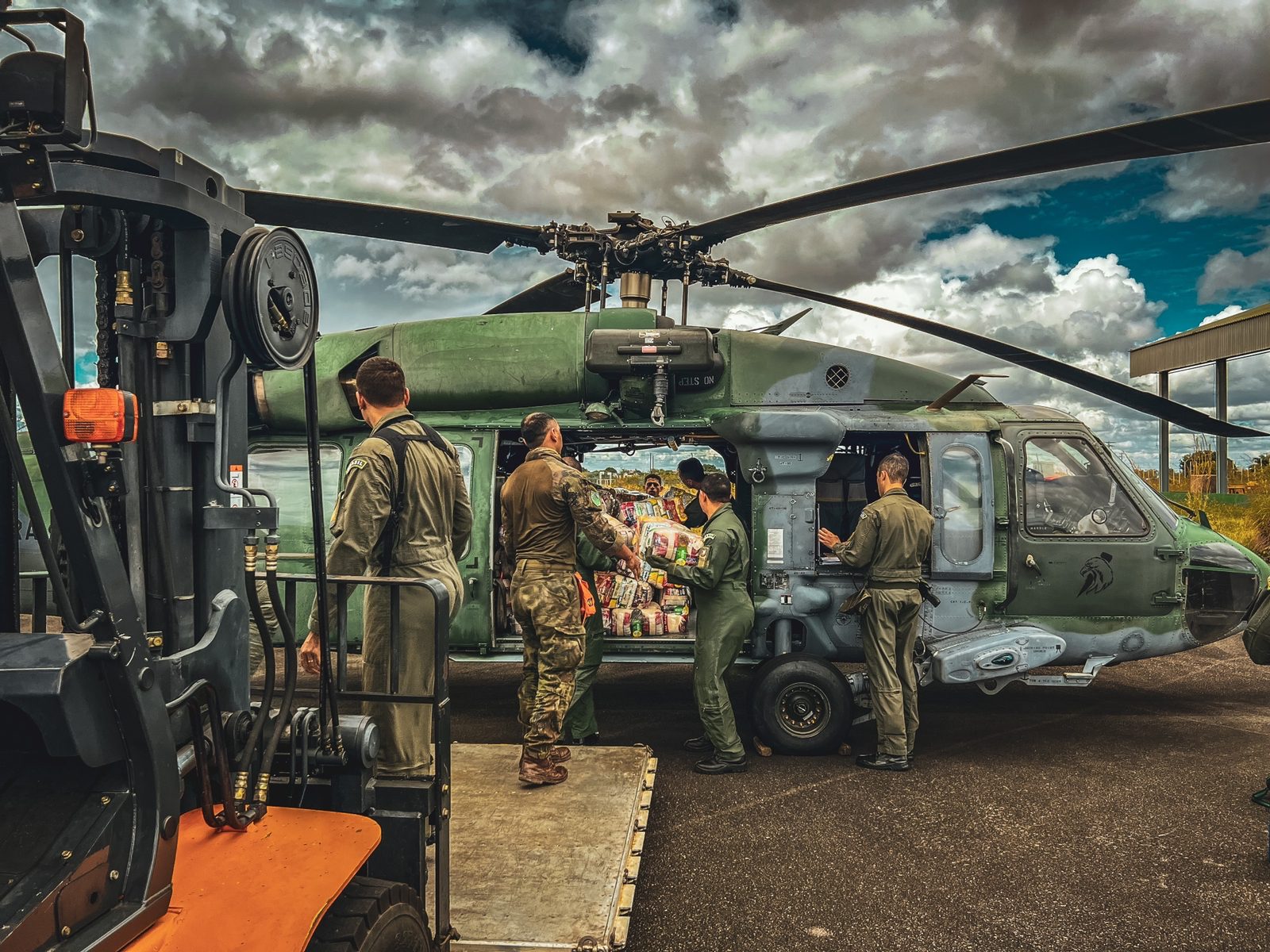Since its creation, the FAB has acted to promote assistance to traditional peoples
Air Force Agency, by Lieutenant Marize Torres
Aeromedical evacuation, action by health professionals, transport of vaccines and food supplies, creation and protection of airfields, among other actions and operations, are part of the missions of the Brazilian Air Force (FAB) in indigenous communities in Brazil. For 82 years, with the aim of defending, integrating and controlling the nation, the FAB has been providing humanitarian aid by serving and contributing to preserve traditional peoples all over the country.
Aeromedical Evacuation
Aeromedical Evacuation (EVAM) is the action that consists of employing Air Force resources to remove injured or sick people to places where they can receive adequate medical assistance. An example of this FAB mission was when, in October 2020, an indigenous man of the Jamamadi ethnicity, living in the Imbaúba community, in the Médio Purus region, near Lábrea (AM), needed specialized medical attention after being bitten by a jararaca snake. He was treated by a doctor from the Special Indigenous Health District (DSEI), who was aboard the H-60L Black Hawk helicopter belonging to the Seventh Squadron of the Eighth Aviation Group (7/8th GAV) – Harpia Squadron, based in Manaus (AM).

Transportation of health professionals
In situations of public calamity, like the most recent one involving the Yanomami people in a state of malnutrition, the FAB also transports health professionals to indigenous communities. The most recent was the transport from Brasilia (DF) to Boa Vista (RR), in the C-97 aircraft, with a committee composed of 12 health professionals from the SUS National Force, which closely monitors the situation of the population in the Yanomami region. There are 11 assistance volunteers and one from the central management team. Besides the professionals, emergency care equipment was sent, such as rigid boards and Automated External Defibrillators (AED).
The missions to support the indigenous communities avoid the need for these people to travel to the cities in search of medical assistance. In 2020, for example, the Institution transported 26 health professionals from the Armed Forces and a nurse from the Ministry of Health to fulfill the Alto Solimões Mission, which aimed to serve five indigenous villages: Umariaçu I and II, Campo Alegre, Vila Betânia and São Sebastião. It is estimated that 16,860 people benefited from the action. Besides taking health professionals, the FAB also transported three tons of materials, including Personal Protection Equipment (PPE) and medicines.
Transportation of vaccines and medicines
FAB continues with its commitment to contribute to the primordial care of indigenous populations, especially with regard to health. Thus, the Institution also carries out transportation of vaccines and medicines and acts in vaccination campaigns.
As part of the mission in the Yanomami region, the C-105 aircraft, operated by the 1st Squadron of the 15th Aviation Group (1°/15° GAV – Onça Squadron), carried out the multiple launching of 2 tons of medicines and basic medical products of first necessity, such as serum, gases, syringes, among others.
In Operation COVID-19, in turn, military personnel from the Harpy Squadron carried out a mission to support the vaccination against COVID-19 of the indigenous population in the Middle Solimões region. In all, vaccine doses were applied in 27 indigenous villages. Operating the H-60L Black Hawk, the crew took off from Manaus (AM) bound for Eirunepé. In the region, during ten days of involvement, the squadron took the DSEI team from Médio Solimões to apply more than 800 doses against COVID-19, serving villages with the most diverse ethnic groups, among them: Deni, Kulina, Kanamari and Mawetek.

Transporting food
To fulfill its life-saving duty, the FAB also carries out a food transportation mission. In the case of the Yanomami people, FAB transported around 1,922 food baskets, totaling about 32.6 tons of food and medicine.
This is not the first time that the Institution has worked with Yanomami indigenous communities in Roraima. In 2021, about 13 tons of food were transported aboard H-60 Black Hawk and C-105 Amazonas. The communities Kaynaú, Homoxi, Parafuri, Parima, Xitei, Hakoma, and Haxiu were served in the operation together with the 4th Special Border Platoon (PEF) of Surucucu and seven other communities in the Alto Alegre region (RR).
Construction and maintenance of aerodromes
Besides working in the creation of airfields, FAB also works in the recuperation of runways – as was the case with the construction of the Surucucu airport – and in the protection of airfields. In the case of Surucucu, it was the renovation that, today, allows aircraft to circulate in the region, in order to support the transportation of supplies there.
The Aeronautical Cartography Institute (ICA) visited the indigenous villages of Bona and Pedra da Onça, in the state of Pará, located 700 km from Belém, with the objective of elaborating the Basic Plan of Aerodrome Protection Zone (PBZPA), which is a survey of pre-established protection surfaces to ensure flight safety in the operation of an aerodrome. In total, five villages were given the opportunity to have the plan. In the second phase, another three indigenous communities in the state of Roraima were contemplated: Paraná, Salvador and Área Única.

Citizenship
Since its creation, FAB has acted to promote the exercise of citizenship to indigenous peoples and rural communities, such as the creation of the National Air Mail, in order to serve especially populations from the north of the country.
Photos: CECOMSAER *** Translated by the DEFCONPress FYI Team ***
